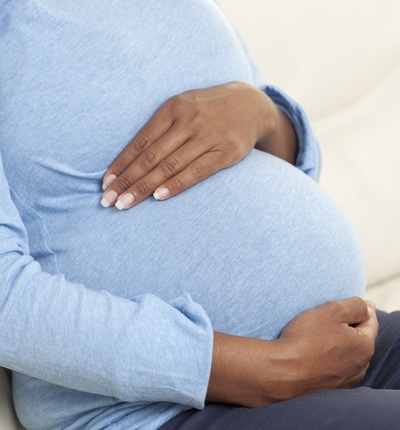
What to expect when you're expecting during a pandemic
Healthcare solicitor Frankie Rhodes discusses women's rights during childbirth and the challenges faced by pregnant women during the current coronavirus pandemic.
Posted on 09 April 2020
There is no doubt that we are living in unprecedented times and this can inevitably cause widespread concern, not only amongst the general public in relation to COVID-19, but particularly within vulnerable groups such as those with underlying health conditions, the immunosuppressed and of course, women who are pregnant.
Whilst our current climate is uncertain and our NHS is under immense strain, resources may be redirected and access to healthcare inhibited for some.
What I do know is that throughout this global crisis, babies will continue to be born with the same frequency, and despite the challenges the healthcare system faces, it remains vital for mothers to be protected and provided with the best possible maternity care.
It is therefore more important than ever that women are aware of their rights in childbirth.
What are women’s rights during childbirth?
All women are entitled to the following rights in childbirth:
- Safe and appropriate maternity care that respects her dignity;
- Privacy and confidentiality;
- The ability to make choices about her own pregnancy and childbirth;
- Equality and freedom from discrimination.
What concerns have been raised about giving birth during the pandemic?
Human rights charity Birthrights have highlighted in their statement of 31 March that there has been an increase in enquiries from anxious pregnant women who are worried about their healthcare being compromised. Some of the concerns I have picked up on are as follows:
- Changes to birth plans;
- Birth centre closures;
- Shortage of midwives and ambulance services;
- Inconsistencies as to whether a birthing partner is permitted and if so, how long for;
- C-sections becoming unavailable where not deemed medically necessary, to free up anaesthetists and operating theatres;
- Safeguarding concerns amongst vulnerable women due to the change in appointment style.
Informed consent and a woman’s right to choose
A woman’s fundamental right during childbirth is that of survival and the expectation that both her and her baby will be safe. This is reflected in the United Nation’s Global Strategy for Women’s, Children’s and Adolescents’ Health, which aims to ensure women survive childbirth, notwithstanding any complications and have the ability to thrive.
In addition, Article 8 of the Human Rights Act 1998 gives all women the right to decide the way in which they give birth. A woman has the right to make autonomous decisions about her body and for her unborn baby, but it is essential that the woman is fully informed so that she can assess all of the available options and make a reasoned choice. This is known as informed consent.
In 2010, the European Court of Human Rights recognised that the right to privacy, the foundation of reproductive rights, also applies to childbirth. In the case of Ternovszky v. Hungary, the Court held that a woman has the right to choose between giving birth in a hospital or at home, with the help of a doctor, with a midwife or without support, if they are aware of the risks and benefits.
The healthcare system should therefore support women in this human right to make an informed decision by legitimising and facilitating their choice as far as possible, as set out in the iconic case of Montgomery. If a woman’s genuine wish is to give birth outside of hospital in light of the current risks (whether assisted by midwives or otherwise) to ensure best practice there must be transparency, respect between parties and continuity of care.
Pregnant women should be encouraged to speak to their midwife about their choices for childbirth and about any restrictions on these choices due to the coronavirus. Everyone is feeling the effects of the virus on our daily lives and there will inevitably have to be changes made to how things are done in relation to childbirth, but it is important these are communicated clearly to all pregnant women so they understand any changes and the reasons for them.
What do the guidelines say?
The most recent guidance has been published on 3 April 2020 under the Royal College of Obstetricians and Gynaecologists (RCOG) and the Royal College of Midwives (RCM).
The full guidelines can be found on the RCOG website.
Some of the key points to note from the latest guidelines are as follows:
Some of the key points to note from the latest guidelines are as follows:
- Women should be advised to attend routine antenatal care unless they meet current self-isolation guidance with symptoms of new continuous cough or fever;
- Units should appoint a group of clinicians to coordinate care for women forced to miss appointments due to self-isolation;
- Pregnant women will continue to need at least as much support, advice, care and guidance in relation to pregnancy, childbirth and early parenthood as before the pandemic;
- Women should be permitted and encouraged to have a birth partner present with them in their labour and during birth. A single, asymptomatic birth partner should be permitted to stay with the woman, at a minimum, through labour and birth, unless the birth occurs under general anaesthetic;
- Restrictions on other visitors should follow hospital policy;
- The evidence for the safety of birth settings that are not co-located with an obstetric unit is based on the availability of ambulance services to enable rapid transfer, and appropriate staffing levels. If these are not in place, it may be reasonable to reduce the provision of these services.

